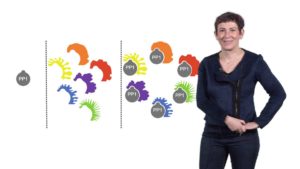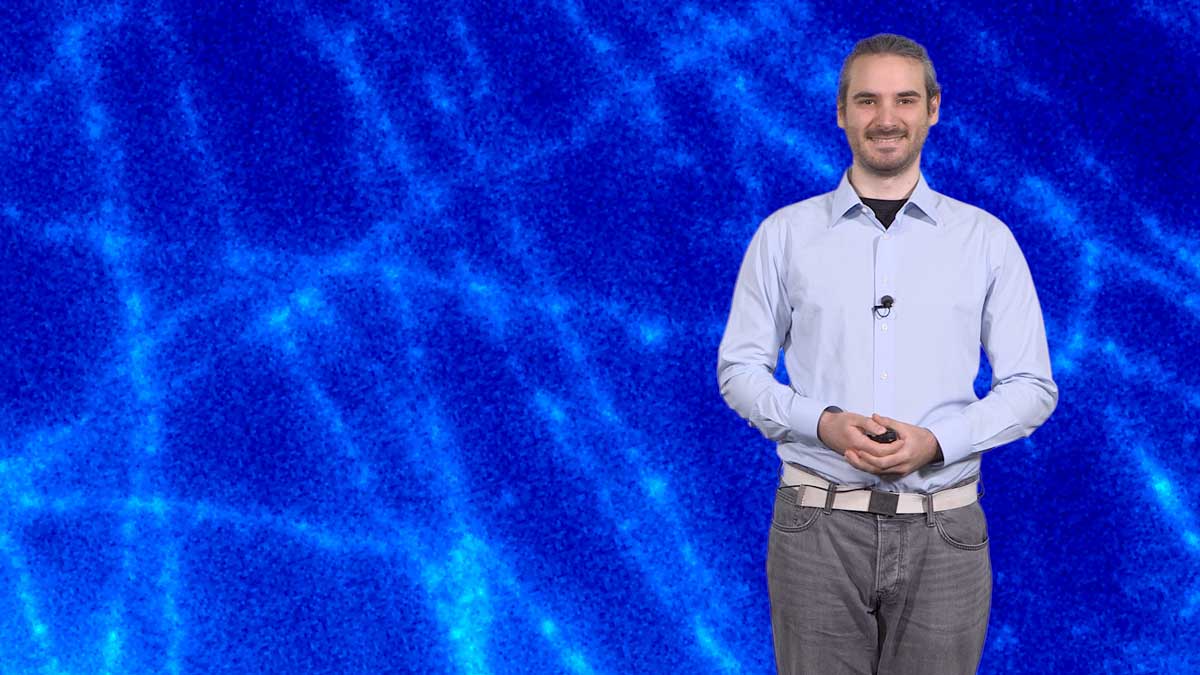Talk Overview
There are many processes and signals in cells that must be turned on and off, sometimes very quickly. How is this done? One important way is via post-translational modification of proteins such as phosphorylation or dephosphorylation. In her first talk, Dr. Anne Bertolotti introduces us to protein phosphatases, the enzymes that remove phosphate from proteins and work in opposition to protein kinases. She gives a brief history of the early experiments that showed that phosphatases are vital to regulating the stability, localization and interactions of many proteins. Bertolotti also describes more recent work demonstrating that protein phosphatases are split enzymes with a catalytic subunit and a subunit that determines substrate specificity. This selective subunit makes phosphatases exquisitely specific and attractive targets for drug development.
Bertolotti’s lab has had a long time interest in understanding protein folding and the role of misfolded proteins in neurodegenerative disease. In her second talk, Bertolotti explains how her lab found that selectively inhibiting the dephosphorylation of eIF2⍺, a translation initiation factor, led to a reduction in protein synthesis. Decreasing protein synthesis allowed cells to “catch up” with the degradation of misfolded proteins that may accumulate as a result of cell stress. Her lab went on to show that a selective small molecule phosphatase inhibitor had therapeutic effects in a mouse model of Charcot-Marie-Tooth disease; a disease that results from the accumulation of misfolded protein in the ER. This exciting result suggested that targeted inhibition of protein phosphatases may have therapeutic potential for neurodegenerative diseases.
In her third talk, Bertolotti describes a platform developed by her lab that has allowed them to rationally identify selective protein phosphatase inhibitors. Using this platform her lab identified a novel small molecule phosphatase inhibitor that blocks the accumulation of misfolded proteins in the cytosol or nucleus and showed the therapeutic effects of the molecule in a model of Huntington’s disease.
Speaker Bio
Anne Bertolotti

Dr. Anne Bertolotti’s research focuses on understanding and preventing the deposition of misfolded proteins in cells, a hallmark of numerous neurological diseases. Bertolotti has been a group leader at the MRC Laboratory of Molecular Biology in Cambridge, UK since 2006. Prior to joining the LMB, she was an Associate Professor at Ecole Normale Superieure in… Continue Reading












Leave a Reply